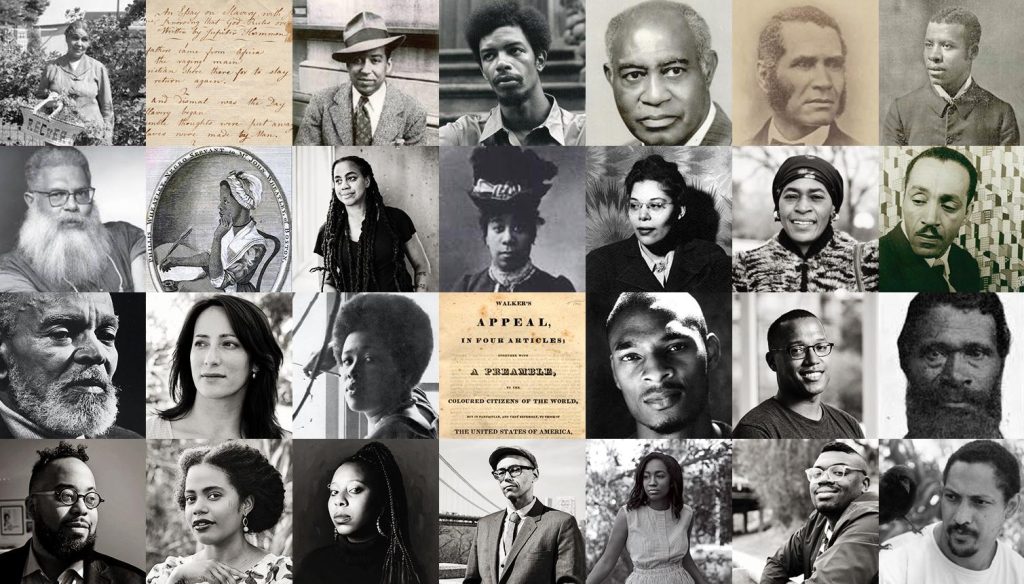
For generations, African American writers and readers have relied on Black-owned publishing houses and bookstores as sanctuaries of cultural expression, community, and resistance. These spaces have not only provided opportunities for Black authors overlooked by mainstream publishers but also safeguarded cultural heritage and nurtured movements for justice. Today, as the publishing industry continues to grapple with issues of diversity and representation, Black-owned presses and bookstores stand as essential pillars of literary and cultural life, amplifying voices that might otherwise be silenced.
A Legacy Rooted in Resistance
The history of Black-owned publishing can be traced back to the 19th century, when free African Americans and abolitionists recognized the power of print as a weapon against slavery and racism. Newspapers like Freedom’s Journal (founded in 1827) and The North Star (edited by Frederick Douglass) provided platforms to counter racist propaganda and to promote abolitionist causes.
Publishing was more than a business venture; it was an act of resistance. By controlling their own presses, Black communities could ensure their stories were told authentically. This legacy has endured for nearly two centuries, reminding us that publishing is inseparable from cultural and political empowerment.
The Harlem Renaissance and the Growth of Black-Owned Presses
During the Harlem Renaissance of the 1920s and 1930s, literature, art, and music flourished in Black communities. While many authors found success with mainstream publishers, Black-owned presses and journals were crucial in providing more freedom of expression. They allowed writers like Zora Neale Hurston and Langston Hughes to experiment with themes of race, identity, and pride without the constraints of white editorial control.
At the same time, Black-owned bookstores began emerging as community hubs. These spaces were not just about selling books—they hosted readings, provided education, and became meeting grounds for political organizing.
The Black Arts Movement and the Call for Independence
The 1960s and 1970s marked another turning point. The Black Arts Movement, led by Amiri Baraka and others, called for a distinctly Black cultural aesthetic. Black-owned presses such as Broadside Press in Detroit (founded by Dudley Randall) and Third World Press in Chicago (founded by Haki R. Madhubuti) published poetry, essays, and manifestos that mainstream publishers often rejected.
These presses emphasized accessibility, often distributing works at affordable prices directly within Black neighborhoods. They democratized literature, ensuring that words of empowerment reached not only scholars but also everyday readers.
Bookstores like Liberation Bookstore in Harlem became iconic spaces for both literature and activism. They stocked works by Malcolm X, Angela Davis, and James Baldwin, ensuring communities had access to revolutionary texts.
Black Tower Publishers and the Contemporary Landscape
Today, Black-owned publishers continue this vital tradition. Black Tower Publishers, among others, has positioned itself as a champion of African American and diasporic voices, bringing forward authors whose works might otherwise be overlooked in mainstream publishing. Like its predecessors, it embraces the mission of amplifying stories that preserve cultural heritage and confront contemporary issues.
Black Tower and similar presses highlight the fact that the publishing industry still struggles with systemic inequities. While large mainstream publishers increasingly diversify their catalogs, African American writers often report unequal advances, limited marketing budgets, and narrow opportunities. Black-owned publishers, by contrast, provide authors with both representation and a sense of ownership over their narratives.
The Renaissance of Black-Owned Bookstores
In recent years, Black-owned bookstores have seen a remarkable resurgence. According to the African American Literature Book Club (AALBC), the number of Black-owned bookstores—once in sharp decline—has grown significantly in the last decade.
Stores like MahoganyBooks in Washington, D.C., and Uncle Bobbie’s Coffee & Books in Philadelphia, founded by activist Marc Lamont Hill, have become cultural landmarks. They combine bookselling with community events, panel discussions, and youth literacy programs. These stores curate selections that reflect the diversity of Black thought—literature, history, children’s books, and works by emerging authors.
Black-owned bookstores also play a critical role in resisting the homogenization of reading culture caused by corporate giants like Amazon. By handpicking works that matter to their communities, they ensure that important books—especially by lesser-known Black authors—remain visible.
Preserving Cultural Heritage
One of the most significant roles of Black-owned publishing houses and bookstores is the preservation of cultural heritage. Through careful curation and commitment, these spaces serve as archives of African American history, memory, and identity.
Without them, many works might have been lost to obscurity. For example, Broadside Press preserved the poetry of Nikki Giovanni, Sonia Sanchez, and Dudley Randall himself, ensuring their influence extended across generations. Today, presses like Black Tower Publishers are continuing this mission by archiving new works that speak to 21st-century struggles and triumphs.
Bookstores also contribute to this preservation. By maintaining shelves filled with African American classics alongside contemporary works, they ensure that readers of all ages can access both heritage and innovation.
Challenges Faced by Black-Owned Publishing Houses and Bookstores
Despite their cultural importance, Black-owned literary spaces face significant challenges:
-
Economic Barriers: Competing with multinational corporations that dominate distribution and pricing is difficult. Many independent presses and bookstores operate on tight budgets.
-
Visibility and Marketing: Black-owned publishers often lack the marketing power of larger companies, making it harder for their books to reach wide audiences.
-
Access to Distribution Channels: Getting books into national retail chains, libraries, and schools remains a hurdle for many small publishers.
-
Sustainability: Without consistent community support and institutional investment, many Black-owned bookstores struggle to stay afloat.
Innovative Solutions and Community Support
Despite these obstacles, Black-owned publishers and bookstores have found innovative ways to thrive.
-
Digital Platforms: Many presses now use e-books and print-on-demand to reduce costs and expand reach. Online marketplaces and social media also help amplify voices that might otherwise go unheard.
-
Community Engagement: Bookstores double as cultural centers, hosting author readings, writing workshops, and civic discussions. By fostering connections, they secure loyal readerships.
-
Collaborations: Partnerships between Black-owned publishers, bookstores, schools, and cultural organizations help expand the reach of African American literature.
-
Reader Activism: Increasingly, readers are making intentional choices to support Black-owned spaces, recognizing that every purchase contributes to sustaining cultural heritage.
Global Reach of Black-Owned Publishing
The influence of Black-owned presses and bookstores is not confined to the U.S. Diaspora connections across Africa, the Caribbean, and Europe have strengthened through publishing. African American writers published by Black-owned presses often find eager audiences abroad, while African publishers collaborate to amplify shared histories of colonialism, resistance, and cultural pride.
Black Tower Publishers, for instance, contributes to this global network by showcasing voices that resonate beyond American borders. In doing so, it bridges communities and affirms the universality of Black experiences.
Why These Spaces Matter Now More Than Ever
At a time when conversations about race, equity, and cultural representation dominate public discourse, the role of Black-owned publishing houses and bookstores is more urgent than ever. They counter systemic exclusion, provide safe havens for storytelling, and empower new generations of writers and readers.
These spaces remind us that literature is not neutral—it reflects power dynamics. By maintaining ownership of publishing and distribution, Black communities assert control over their narratives, ensuring that future generations inherit a rich, authentic cultural record.
Conclusion: Building the Future of Black Literature
The rise—and persistence—of Black-owned publishing houses and bookstores reflects a long tradition of resistance and creativity. From 19th-century abolitionist presses to modern institutions like Black Tower Publishers, these spaces have empowered African American authors and preserved cultural heritage.
As readers, educators, and institutions, supporting these spaces is not just an act of commerce but an investment in cultural survival. Every book purchased from a Black-owned bookstore, every author signed by a Black-owned publisher, strengthens the foundation of a literary ecosystem that values equity and diversity.
The future of African American literature depends not only on the voices of its writers but also on the infrastructure that sustains them. Black-owned publishing houses and bookstores are that infrastructure. Their survival and growth will ensure that African American stories continue to inspire, challenge, and reshape the world.

